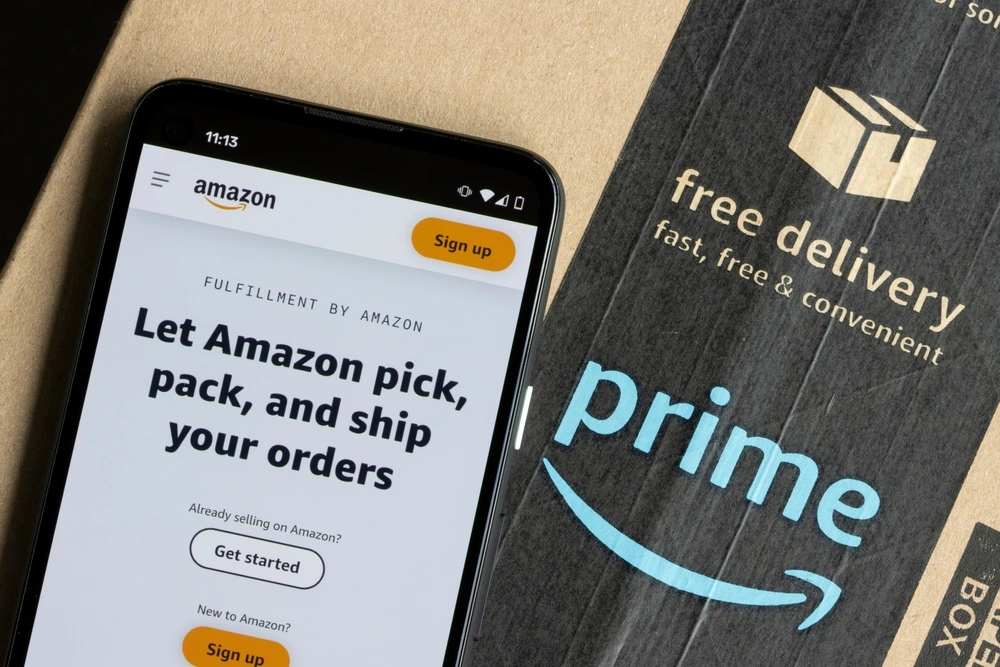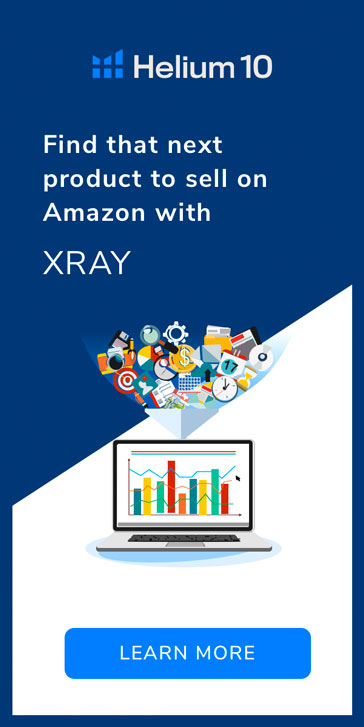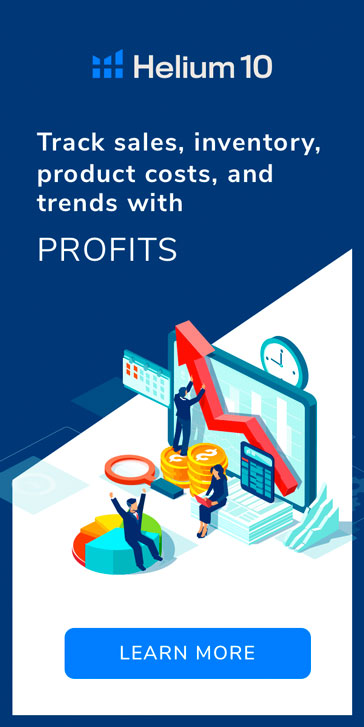Selling on Amazon can certainly seem compelling as you have quite likely heard about the many different success stories out there. It is no surprise that you would like to see if Amazon FBA is a worthwhile endeavor.
In essence, you want to make sure to do your due diligence by asking the critical question, is Amazon FBA worth it? Asking the key question is Amazon FBA worth it, helps you to strategize and account for the expenses and for the level of effort required to succeed.
It is a fantastic idea to thoroughly and genuinely understand the process of Amazon FBA before embarking on this potentially profitable journey.
Is Amazon FBA worth it?
To help you through this learning curve, here is a lowdown on finding out your answers to the pressing question, is Amazon FBA worth it for you and your present situation. Be advised that this overview will go through the process, the costs associated with it, and the potential return.
- What is Amazon FBA?
- Amazon FBA vs. FBM
- What to Consider When Starting an Amazon FBA Business
- Benefits of Amazon FBA
- Drawbacks of Amazon FBA
- Amazon FBA Tips
- Fulfillment by Amazon FBA: FAQs
- Wrapping Up
What Is Amazon FBA?
Amazon started Fulfillment by Amazon more than a decade ago. It may come as a shock to find out that the FBA program has been around since 2006.
The fact that this program has been around since 2006 and still lasts to this very day, points toward positive experiences by those who participate in the program. The success of the program may answer those who ask if FBA is worth it for them.
It is no surprise that Amazon seeks to court more sellers with credits and other incentives to bring them into this program.
What is the Value of Amazon FBA?
Amazon FBA simplifies operations for large and small businesses by storing products, obtaining purchase order, packing goods, accounting for a certain level of customer service, and processing returns.
Is FBA worth it?
Remember that while obtaining the sale is essential, fulfilling the order efficiently, effectively, and reliably is critical.
Merchants have turned to Amazon FBA and still turn to this FBA shipping program because it streamlines the complicated logistics side of the business.
The Amazon FBA program helps to remove additional hassles and headaches by providing merchants with a compelling platform that will handle the steps after the sale.
It can certainly be worth it for those who can account for the FBA fees that Amazon levies on merchants.
The Comprehensive FBA Process
Here is a quick lowdown on how this program works for merchants:
- The Merchant produces or obtains the products;
- The Merchant ships the products to the e-commerce giant that is Amazon.
- The consumer browses around and enthusiastically obtains one of the goods.
- Amazon looks at the order, processes it in line with your specifications
- The large internet company then sends out the goods and makes certain that it reaches the consumer within the right time frame without any issues.
Sellers appreciate the FBA program because the process is simple and seamless. It enables merchants to focus on specific core activities while handing off other activities to their partner, Amazon.
This all sounds great and all, but does Amazon FBA really work? Is selling on Amazon FBA worth it for current and potential merchants? It’s important to consider the merits of both options before making your decision.
Amazon FBA vs. FBM
What is the goal of your Amazon business? Like other business entities, it is to enhance your sales and improve your bottom line. However, most business leaders find themselves at a crossroads when they seek to choose between Fulfilled By Amazon (FBA) and Fulfilled By Merchant (FBM) when deciding the best route for their ventures.
Here are the factors to consider before moving forward:
- Fees and expenses
- Weight and size of your product
- Logistics
- Seller feedback
- Inventory turnover rate
Now, let us look at the two options:
FBA
FBA will help you scale your venture as you reach more customers. With FBA, you (the seller) will send your products to Amazon for warehousing and order processing. However, you will still manage the sales. In essence, other logistics take place in a seamless manner if Amazon stocks your merchandise.
Go with FBA when handling your products on Amazon if you don’t have proper logistics in place. It is also a great option when you are dealing with small and lightweight products. If you are looking to keep logistical costs low, FBA may be best.
Further, this is the option for you if you are okay with Amazon having more control of the process.
FBM
FBM obliges you to store and ship the products yourself or outsource them to third-party fulfillment. In this case, the third party is not Amazon. However, you (the seller) will be responsible for ensuring proper compliance to Amazon’s service levels (shipping and orders). Similarly, you will have to provide returns processing and customer service for your orders.
It would be advisable to use FBM if you need more control over your clients. At the same time, you would think about conducting fulfillment by the merchant if you have excellent customer service practices; you have a slow inventory turnover; you are dealing with heavy or oversized products and can mitigate the expenses when fulfilling the product demands.
When you go with the FBM option, you imply that you have the right logistical operations to meet your customer’s needs seamlessly.
What to Consider When Starting an Amazon FBA Business
Here are a few aspects to consider when thinking about starting an Amazon FBA Business.
Fees
It is a fact that every single platform provider will charge for their services. The Amazon FBA program goes in line with other platforms and will charge several fees. The platform will come with a selling plan, referral fees, fulfillment fees, and other potential costs.
The fees will vary for merchants depending on the options that they choose.
Merchants will want to carefully ask, does Amazon FBA work for them after they account for the fees that are present with this program.
Workload
Merchants should ask themselves if they can handle the workload associated with starting the FBA business. The workload is an aspect to account for as one might transition from a full-time job to conducting Amazon FBA full time over the long term. It is necessary to know if you have the time to invest in your FBA business each day.
Product
Remember that it is up to you to maximize your success on Amazon. You can only do so by conducting the right research, diving into the data, and finding viable products. You can only position yourself for success by preparing and planning ahead of time. The business owner must account for quality products, a compelling brand, and essential differentiation.
It is here where you would want to think about great packaging or other aspects that make your product and brand stand out. It is up to you to do the work and ensure that you are taking the right steps with product development.
This is why sellers think about FBA vs. dropshipping as they go about their seller journey. They check if they can minimize the need for significant investment by going the dropshipping route. Again, merchant preferences will vary. The choice to go with dropshipping or to move forward with Amazon FBA is yours to make.
Customer service
Thankfully, Amazon accounts for a certain level of customer service when you sign up with the Amazon FBA program. They will address returns and exchanges. At the same time, it is up to you to preserve your brand and to make sure that you are delighting your customers.
Storage
Amazon FBA accounts for storage and enables you to focus on increasing sales so that your products move out of Amazon warehouses.
Of course, it is up to you to monitor inventory levels so that you can replenish the items to ensure smooth operations. This monitoring of inventory levels is critical to a successful and streamlined business.
As noted earlier, if you have long-term product storage needs, Amazon may charge you more. Most sellers focus on marketing, awareness, and product turnover so that they will not have to worry about additional storage costs.
Taxes
It is necessary to comply with taxation policies. Sellers on Amazon are not exempt from taxes and must pay it and file their taxes via the respective tax forms. These forms may vary from 1099-K to the Form 1040 process.
You can be certain that Amazon is reporting these taxes as efficiently as possible to remain in compliance with the tax laws. It would be in your best interest to file as well.
At the same time, remember that all is not lost when thinking about this topic, you can claim deductions that are in line with your business.
Benefits of Amazon FBA
Merchants turn to Amazon FBA to obtain more simplicity. The addition of complexity can smother a business and its potential and ruthless simplification creates significant value.
Good for passive income
If you are looking for ways to generate passive income, then FBA may be a compelling option. The key here is to select the right products, conduct the right promotion, and maintain effective inventory levels.
Plenty of storage
Thanks to Amazon, you can use their storage and its host of services to store and send your items. You do not have to worry about keeping it in a house or in other places, incurring more risks and costs.
Drawbacks of Amazon FBA
Here are a few of the drawbacks of Amazon FBA.
Cost
The cost may be a concern to sellers. This is where you must ensure that the items that you choose have the right margins to provide the right return on investment. Amazon is transparent about its costs so you can know for certain the cost hurdles present in the FBA program.
Limited control
Limited control is a factor to consider. Some businesses want to make sure that they are able to handle everything in-house. These businesses can freely go their own way. Amazon FBA is a program that provides a way to get started quickly and simply.
Competition
There is certainly competition on Amazon FBA. At the same time, remember that competition will exist on other platforms as well.
Amazon FBA Tips
When selling on Amazon FBA remember to think about these aspects:
- Be customer-centric with listings
- Choose staple categories like exercise equipment or pet materials
- Inventory management is critical
- Streamline activities with automation each step of the way
- Check your key performance indicators regularly
- Maximize positive customer reviews
- Craft a compelling story for your brand
- Allocate capital to advertising
These are a few compelling tips to get started.
Fulfillment by Amazon: FAQs
Is Amazon FBA profitable?
Yes, Amazon FBA is profitable. Amazon and other sources indicate that individuals can earn over $1,500 a month with an appropriate business. It is essential to note here that results may vary.
What fees can I expect from Amazon FBA?
The fees you can expect will comprise the selling plan, the referral fees, fulfillment fees, and other variable costs.
Should I use Amazon FBA?
You should use Amazon FBA if you are looking for an efficient way to get started in the e-commerce sector. At the same time, it is necessary to realize that you must conduct research, invest in your business, and find out what works for you.
Wrapping Up
Finding out if Amazon FBA is worth it for you can take a little bit of time and research but the initial research can pay off in the long run. Amazon is compelling because it offers continuous improvement to its platform, cutting-edge technology, and broad distribution from a marketing standpoint and logistics standpoint.
If you are looking for assistance with your FBA business, work with an experienced partner such as Helium 10.
Through Helium 10, you can get the most out of your online marketplace activities. Whether you want to boost your marketing or improve your inventory management, our smart solutions can finetune your costs and boost your efficiency across multiple aspects. To see how our services can help, don’t hesitate to check out our offerings today.






























